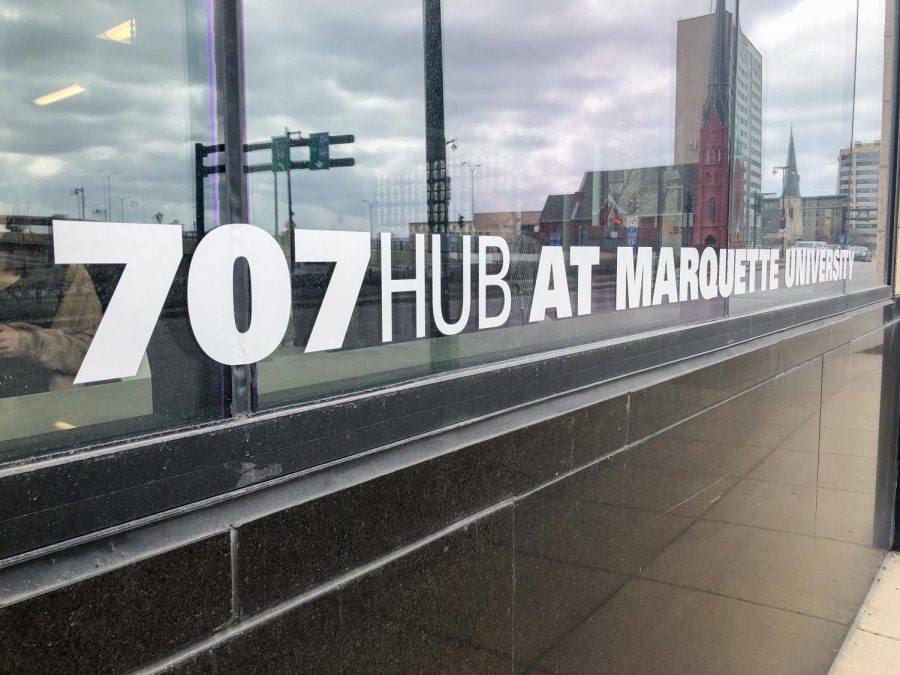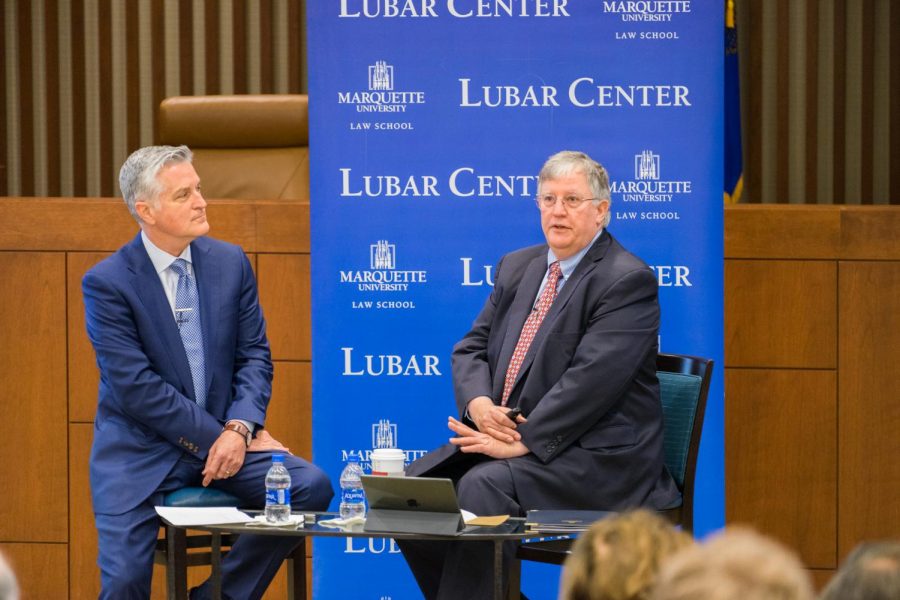Over the past 15 years, small businesses have accounted for about 65 percent of the private-sector net job creation according to business employment dynamics figures, According to The Small Business Association.
Members of Milwaukee’s startup community and venture capital managers discussed how to Create a Healthy Innovation Economy during the weekly On the Issues event hosted by Mike Gousha Nov. 12 in the Lubar Center at Marquette University Law School’s Eckstein Hall.
Among the Speakers was Matt Cordio, co-founder and president of Skills Pipeline and Startup Milwaukee. Cordio said he thinks that there is a lot of momentum building in the tech and start-up industry in Milwaukee due to the engagement that he sees at various start-up events and the increased interest from venture groups from the Midwest in local companies.
“There is definitely significant momentum here but we still have a lot of work to do to lay the framework to really grow our tech and startup ecosystem here in Milwaukee, and we have seen larger companies get involved in that ecosystem and that is definitely a positive,” Cordio said.
Cordio said that it is important to remember that tech company founders really have to drive the conversation about the needs that they have concerning things like venture capital and access to customers or service providers as these things are necessary to building a strong and vibrant tech startup ecosystem. Cordio did say that a common problem for the midwest region, and Wisconsin in particular, is that a majority of venture capital is going to the coasts.
“We have seen continued efforts to bring more capital to the midwest,” Cordio said. “There is definitely a lot of catching up to do, but I think Milwaukee has a lot of opportunities to improve our numbers.”
Aaron Gillum, senior vice president of 50 South Capital, which manages the Illinois and Indiana Fund programs, was also in attendance and said that he thinks money is going to the coast because there are more research institutions, large corporations, and high net worth individuals. Gillum said there may be a cultural difference as well.
“One thing that I think gets glossed over is the cultural difference between some of the coastal cities and the midwest when it comes to taking risks, starting companies, taking chances on new innovations and launching your own start-up,” Gillum said.
Gillum said that he thinks the risk-reward culture that he was describing is just now starting to occur in the midwest, but it has been going on for generations on these coastal cities, and that is a major reason why bigger companies like Google or PayPal start on the coasts rather than the midwest. Gillum thinks this fact has resulted in the discrepancy in venture capital between the Midwest and the Coasts.
Ken Johnson, a partner with Badger Funds of Wisconsin and managing director at Kegonsa Capital Partners, believes that if you don’t have good data, you will not have good outcomes. He has made it a point to acknowledge that Wisconsin has been rated last by the Kauffman Institute, a non-profit company that works with entrepreneurs, to empower them with tools and resources, on the list of start-up states in the United States.
“Venture Capital is about high risk and if you don’t make a high return for your high risk we become what is called a flyover state,” Johnson said.
Johnson describes a flyover state as a state that people fly past because nobody is making money. Johnson also said that one of the most important things for preventing Wisconsin from being a flyover state was making returns comparable to the risks being taken and growing the number of talented venture capitalists in Wisconsin.
Also at the event was Kathleen Gallagher, Pulitzer Prize-winning writer and executive director of the Milwaukee Institute. Gallagher said that Milwaukee has big corporations that are developing technology, but she thinks there are better ways to unlock new technologies than what these corporations have found so far they have found so far.
Gallagher said it is important to have a healthy innovation economy.
“Because that is where companies come from, and most jobs created come out of start-ups and that is where new disruptive technologies from, the older companies need to develop new technologies or buy it and start-ups are usually where they find it,” Gallagher said.
This story was written by Beck Salgado. He can be reached at beck.salgado@marquette.edu.














